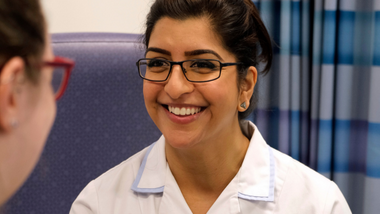
What is an apprenticeship?
An apprenticeship is a real job where you learn, gain experience and get paid. You’re an employee with a contract of employment and holiday leave. By the end of an apprenticeship, you'll have the right skills and knowledge needed for your chosen career.
An apprenticeship is funded from contributions made by the government and your employer.
As an apprentice you’ll:
- learn and train for a specific job
- get paid and receive holiday leave
- get hands-on experience in a real job
- study for some of your working hours - usually at a college, university or with a training provider
- complete assessments during and at the end of your apprenticeship
- be on a career path with lots of future potential
Levels of Apprenticeship
Each apprenticeship has a level and an equivalent education level. You can start an apprenticeship at any level.
Depending on the level, some apprenticeships may:
- require previous qualifications such as an English or maths GCSE
- give extra training in the English or maths skills needed so you’re at the right level
At the end of your apprenticeship, you’ll achieve the equivalent education level. For example, if you complete a level 3 apprenticeship, you’ll achieve the equivalent of an A level.
| Level | Equivalent education level |
| 2 | GCSE |
| 3 | A level |
| 4, 5, 6 and 7 | Foundation degree and above |
| Level | Equivalent education level |
| 6 and 7 | Bachelor’s or master’s degree |
Entry Requirements
Entry requirements will depend on the employer and the type and level of apprenticeship.
For example, you may need four or five GCSEs at grades 9-4/A-C or equivalent to do a level 3 apprenticeship. To start a level 5 or 6 apprenticeship you're likely to need A-levels, equivalent level 3 qualifications or relevant and sufficient experience.
Find out more about the different apprenticeships that are available in health and social care.
Enhanced Level Apprenticeships
Dietetic specific enhanced practice apprenticeships will be available in England universities from 2025. More information can be found on the relevant NHS England webpages here. If you work in a university and are considering delivering an enhanced practice apprenticeship, curricula information can be found here. If you would like to find out more about starting an enhanced clinical practice apprenticeship, you should contact your employer and apprenticeship lead directly. You can also visit the Enhanced clinical practitioner / Institute for Apprenticeships and Technical Education.
Learn more about what enhanced practice is and how to access other relevant education and training on the new BDA enhanced practice webpage.



